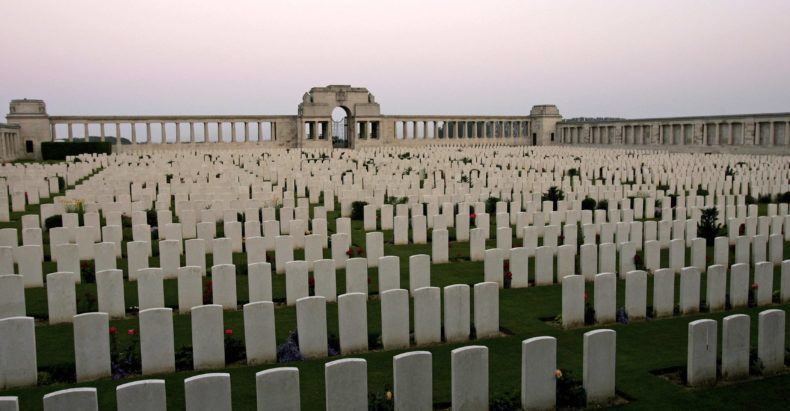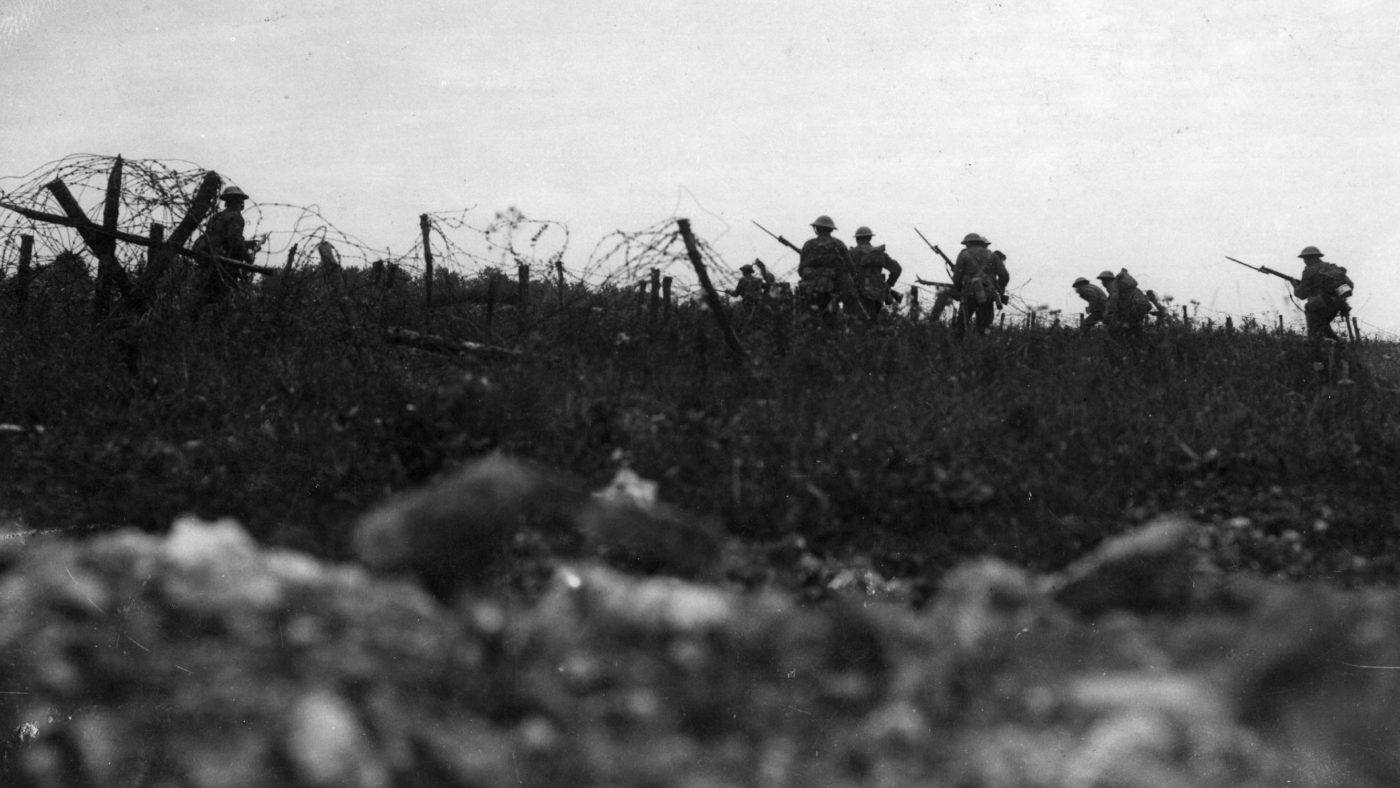Every so often a French farmer still turns up a bit of human bone while ploughing the fields of the Somme valley in Northern France. Pieces of shrapnel, shards of shell casing, the odd drinking mug – they all turn up, are picked up and thrown away, or kept and classed as “finds”. It’s all archaeology now. History. It’s all in the past.
The First World War is gone from our lives in any real sense because every single person that took part in it is now dead, and while some of us remember the survivors (I, for example, knew my Great Grandfather, who fought for the DLI in WW1) none of us grieves the death of anyone who actually died in battle; their names are no more than inscriptions on war memorials.
And yet we mark its end every year: we wear poppies, we fall silent at the Cenotaph – literally “the empty tomb” – at the eleventh hour of the eleventh day of the eleventh month, and we bow our heads to commemorate the hour the guns fell silent. The politicians and Royals wear black and it has every appearance of an act of mourning. But how can we be said to mourn when none of us remembers those who died?
The ceremony began as an act of collective intensive mourning after the war, a show of grief and loss and it has, over the years, developed into something else. The first Cenotaph, a temporary structure made of wood and plaster, was quickly erected for a peace parade in 1919, and was replaced by Edward Lutyens permanent memorial in 1920. The men and women who first stood by it in silence were mourning their bothers, their sons, their fathers, their friends – for there was no such thing as a life untouched by loss from the “war to end all wars”. And now the majority of those mourners, too, are dead. But we continue to stand in silence by the famous monolith of Portland stone, and we turn our thoughts to the thousands of soldiers who ended their lives in the trenches and shell-holes of Flanders. We imagine the scenes and we ponder the futility of it all. We feel the terrible tragedy of all those lives lost in a grotesque act of military incompetence. We think of the dead and we pity them. We deeply regret their loss, if only in the abstract. This, then, is not mourning; it is Remembrance.
This sort of Remembrance – that is, a collective act of honouring the dead, marked by a formal ceremony, as opposed to an idea contemplated by an individual – didn’t exist before the Great War. It had no need to exist before 1919 because no previous conflict had been fought on this scale by predominantly conscript armies. Never before had countless battalions of ‘citizen-soldiers’ been slaughtered like this, in such numbers. Regiments of ‘pals’, recruited together in order that friendships could be exploited to keep men loyal in horrific circumstances, were annihilated together, blown-up, torn apart, bayonetted, machine-gunned, and left (in the words of the song) “hanging on the old barbed wire”.
So if we don’t actually remember the dead as individuals, why is it so important to take part in acts of Remembrance? Why should we capital-R Remember them?
This weekend marks the Centenary of the beginning of the battle of the Somme, the bloodiest battle in British military history, in which nearly 20,000 British soldiers died on the first day alone. Having been told that the seven-day bombardment of the German lines would have wiped out every last Jerry, all those thousands of men, walked – yes, most of them actually walked, so confident were their commanding officers of the improbability of any German returning fire, to their deaths in no-man’s-land.
Europe today is in a more precarious state than it has been since 1945, a year that marked the end of a war that was so indisputably a result of the previous one that it could almost be called “The Great War Act Two.” Putin is on manoeuvres in the East and the Baltic states are becoming increasingly jumpy. Following the British referendum the European Union (which is admittedly an economic construct not a formal alliance, but which, through a spirit of active cooperation, has helped preserve peace between the major in European powers since 1945) is now under threat. All over the continent thousands upon thousands of migrants and refugees from the Middle East and Africa are pouring across our borders. And those that are not crossing the borders alive are being washed up on our beaches. In the light of this, as we contemplate a battle that took place 100 years ago, the question is not, “Why do we still Remember these people?” Rather it is, “What will become of us if we cease to Remember them?”
For in another hundred years time whose bones will be being turned up in the fields of Europe? Whose national flag will be engraved in the remnants of a machine gun that a child finds while playing in the sand? And as the citizens of France, or Poland or Britain contemplate the wars of the 21st Century will they look back and ask, “Why could they not learn? Why did they not remember?”
I believe we have a duty to the dead, just as we have a duty to future generations – and the two come together in the act of Remembrance. Because the fact is that the act of Remembrance is far more than simply recalling and honouring: it is a pledge to the future. This weekend as we think of the Somme and the soldiers that died there, let us Remember. Let us Remember for the sake of those that will come after us, that they might live lives un-blighted by the terrors of war.
And as we make that pledge to future generations – as we promise that we will never again let such carnage engulf us, we must think of all the thousands that died on the fields of the Somme and we must vow that they will not have died in vain.
They shall not grow old as we that are left to grow old:
Age shall not weary them, nor the years condemn.
At the going down of the sun and in the morning,
We will remember them.

The grave stone of soldiers killed in the Battle of Somme at the Pozieres Memorial. Scott Barbour / Getty Images


